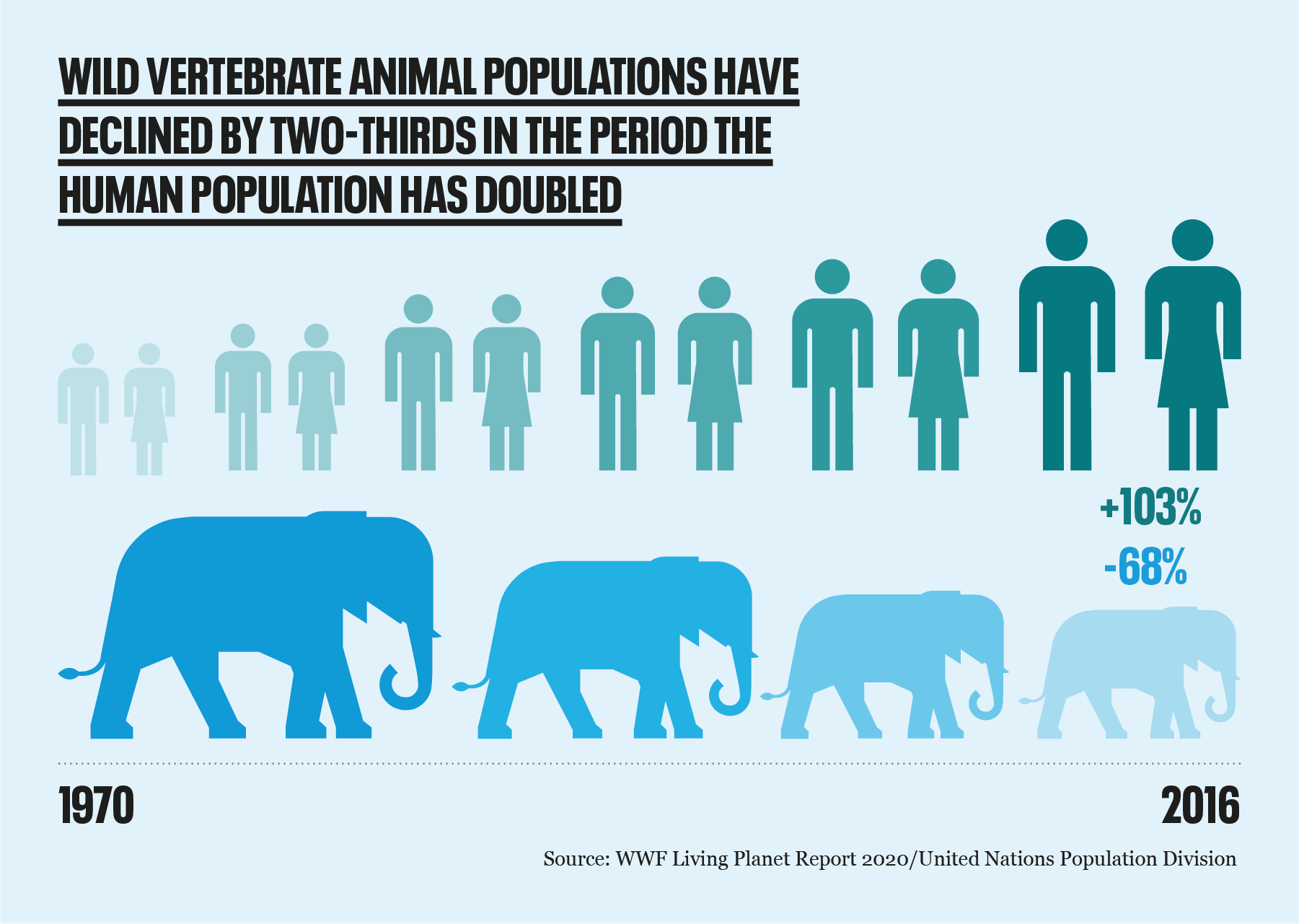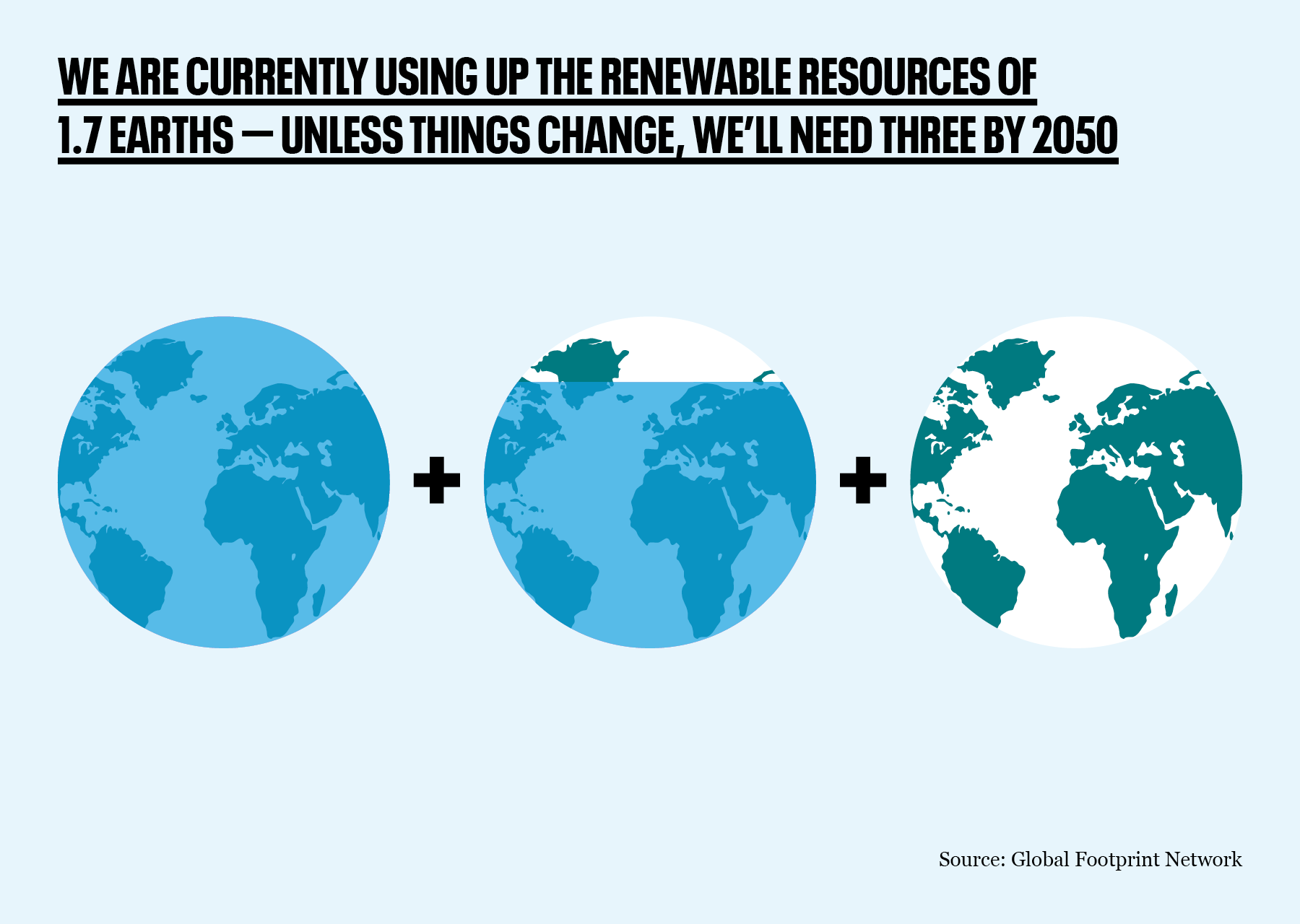
The BBC on population: Re-treading a well-worn path
Human population dynamics, impacts and challenges are rarely raised or discussed in any depth on mainstream media. So the fact that the BBC gave over one of its flagship Radio 4 ‘Rethink’ series to population should be welcomed by anyone interested in better understanding this crucial, but overlooked, issue. Unfortunately, the programme had some major shortcomings. PM Director Robin Maynard and Researcher Monica Scigliano explain.

Framing the debate
Certainly, the series’ five episodes covered much that was interesting, thought-provoking and enlightening, with a strong cast of contributors from across the world bringing their expertise and experience to bear. However, the series set those valuable and diverse perspectives in a framing that, rather than enabling free-ranging, ‘rethinking’ of the issue, ploughed an all too familiar furrow, namely: ‘Concern about population growth is and has been the longstanding, dominant mainstream view and as such, deserves to be challenged.’
The opposite is the case. For decades, the prevailing paradigm amongst policymakers, the media, and clung to by most NGOs, has been that human population growth is not an issue of serious concern and therefore should not be talked about. Professor Diana Coole has well described this current framing, under the term ‘silencing discourses’.
Human population raises difficult cultural, psychological, ideological, religious and ethical issues. Not least of equity, fairness, and justice where the responsibility for historic and current inequities and injustices lie firmly with those of us living in the Global North, while the uncomfortable factors of patriarchy and restriction of women’s rights prevail predominantly in the Global South. All the more reason for Rethink to have provided a genuine rethinking and expanding of the debate.
Presenter Amol Rajan kicked off the series by playing a clip of Elon Musk speaking at a Wall Street Journal event in December 2021, in which he warned that “I think one of the biggest risks to civilization is the low birth rate and the rapidly declining birth rate. There are not enough people, I can’t emphasise this enough. Please look at the numbers—if people don’t have more children, civilization is going to crumble, mark my words.”
In the background, fellow tech billionaire Jack Ma nodded in agreement. This is the same Jack Ma who promotes and profits from China’s toxic ‘996’ work culture, which has driven Chinese employees to death by exhaustion and suicide. China’s problem is not its “demographic time bomb”, but an extremely exploitative, growth-at-all-costs mentality. The Musk and Ma ‘population collapse’ alarm call, which Rethink lent credibility to, comes from an economic mind-set that views people as units of labour (more people means cheaper labour) and as consumers of the stuff that labour produces.
Fixation on growth
Rethink Population mainlined on economists and political theorists raising concerns related to population decline, such as future pressure on pension funds. Many of those concerns are legitimate but manageable, as explained in PM’s report ‘Silver linings, not silver burdens’, which lists practical policy solutions to population ageing and shows panic about it to be hugely overblown.
Not to mention that we are nowhere near achieving population decline at a global level. The programme mentioned the widely cited 2020 Lancet study which estimated that our future population could be lower than the authoritative UN projections, but even in this optimistic scenario which relies on sustained progress relating to girls’ education and family planning uptake, we’d end up with a signifcantly larger population by the end of the century than today. Hardly the “jawdropping crash” the media spun it into.
The programme unfortunately bolstered the pervasive and problematic fear of an end to economic growth. It didn’t reflect the recognition by a growing body of ‘alt-economists’ that our planet is finite, and therefore economic growth, like population growth, cannot continue indefinitely. Alt-economists challenge the supremacy of GDP as a true measure of human progress, instead focusing on the more nuanced measure of wellbeing.
Overshoot – consumption and population
Glaringly absent from Rethink Population was any proper consideration of the environment. At one point, after another contributor alluded to the impacts of population growth on the natural world, Amol Rajan breezily said, “Environment, sure and we’ll get on to that”. But the series never did – and none of the contributors came from an ecological discipline. Yet the population factor is evidenced as an indirect driver of our climate crisis, mass extinction of wildlife, and depletion of natural resources in numerous published scientific reports and by expert bodies such as the IPCC and IPBES, as well as the largest, international collective of scientists, the World Scientists’ Warning.


The programme noted that hyper-consumerism is a key factor driving our ecological and climate crises, while largely dismissing population size as irrelevant. It is absolutely right that in rich parts of the world, per capita consumption far exceeds what our planet can sustain or could provide equitably to everyone, everywhere, which is why we actively promote more sustainable consumption in wealthy nations.
The highly-respected Global Footprint Network has best articulated this ‘overshoot’ through its annual Earth Overshoot Day, which analyses how many planets humanity would need in order to keep using resources at the current rate without destroying nature. At present rates it’s nearly two planets, projected to rise to three planets by 2050. Population size is one of the five key factors in these calculations.
When those who dismiss population talk about the need to curb consumption, they rarely consider the drastic degree of decrease needed. A 2018 paper in Nature Sustainability estimated that, given equal usage of resources, our current population could indeed live sustainably, but only if each of us meets only our most basic needs. Economist Sir Partha Dasgupta and his daughter, demographer Dr Aisha Dasgupta, put it in terms of GDP: sustainability would only be feasible with a maximum world GDP of $70 trillion, which if spread equally among our currently population would mean less than $9,000 per person. To put that in context, Guatemala has a per capita GDP of just under $9,000, whereas the global average per capita GDP stands at around $20,000, with UK citizens averaging about $40,000.
A lifestyle that enables high life satisfaction – the kind undoubtedly enjoyed by most of Rethink’s guests – is only possible if we keep living in planetary ‘overshoot’ and in a world where gross global inequality persists. Technological advances can help through increasing energy efficiency, food supply, etc., but are nowhere near enough on their own. Both global consumption and population must decrease.
Choosing smaller families cuts consumption
Some contributors to the programme lamented fertility decline in wealthy countries while simultaneously blaming environmental degradation on consumption. Any rational concern at the impact of hyper-consumption would also welcome population decline in those parts of the world where consumption is highest. Adopting eco-actions such as recycling, cutting out intensively reared meat, driving an electric car, etc., are championed as positive shifts to a more sustainable lifestyle. They are indeed beneficial, but make a relatively small impact when compared to the individual eco-action of choosing a smaller family in high-income, high consumption countries. A 2017 study by Lund University concluded that having one fewer child could be by far the most effective of all these measures over the long term.
But most of all, it’s about women
It was left to Poonam Muttreja, Executive Director of the Population Foundation of India (PFI), to provide some balance to the opening chauvinistic perspective of Elon Musk – a perspective that views women and their wombs as mere economic instruments for keeping the wheels and profits of capitalism churning. As Muttreja observed, global fertility decline should be celebrated because it reflects women having choices over their family size. Yet no one mentioned that 270 million women worldwide still have an unmet need for safe, modern contraception. It is an inconvenient truth that our global population would not stand at nearly 8 billion people on Earth if girls and women everywhere had access to secondary education, sex education and quality family planning services, and were free from the patriarchal pressure to have large families.
Shutting down any conversation about population only results in resources being diverted from critically-needed services, as we have seen recently with the UK Government cutting aid to the UNFPA global family planning programme with subsequent tragic results.
Population issues and solutions must be addressed and enabled at the individual, personal, human level. Time and time again, when that power of choice and the means to enact it are offered and provided, women choose to have fewer children. Elon Musk, Jack Ma, the Vatican, and some of the contributors to Rethink Population may not like that – but it really isn’t any of their business.
Suggesting the solution to economic problems is to have more children is simplistic, erroneous, and harmful. An issue crying out for greater media scrutiny is the shocking rise of coercive pro-natalism, as shown in our report ‘Welcome to Gilead’: women’s rights and choices are increasingly being restricted around the world as parts of attempts to increase birth rates.
Dr Sarah Harper of the Oxford Institute of Population Ageing provided a welcome voice of reason on the programme, summarising:
“Falling fertility is good: it’s good for the planet, it’s good for communities and good for women.”
A longer version of this article is available here.

